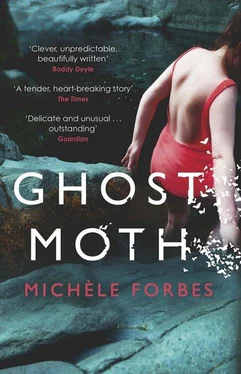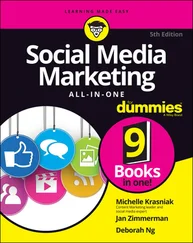Michele Forbes - Ghost Moth
Здесь есть возможность читать онлайн «Michele Forbes - Ghost Moth» весь текст электронной книги совершенно бесплатно (целиком полную версию без сокращений). В некоторых случаях можно слушать аудио, скачать через торрент в формате fb2 и присутствует краткое содержание. Жанр: Современная проза, на английском языке. Описание произведения, (предисловие) а так же отзывы посетителей доступны на портале библиотеки ЛибКат.
- Название:Ghost Moth
- Автор:
- Жанр:
- Год:неизвестен
- ISBN:нет данных
- Рейтинг книги:3 / 5. Голосов: 1
-
Избранное:Добавить в избранное
- Отзывы:
-
Ваша оценка:
- 60
- 1
- 2
- 3
- 4
- 5
Ghost Moth: краткое содержание, описание и аннотация
Предлагаем к чтению аннотацию, описание, краткое содержание или предисловие (зависит от того, что написал сам автор книги «Ghost Moth»). Если вы не нашли необходимую информацию о книге — напишите в комментариях, мы постараемся отыскать её.
Northern Ireland, 1949. Katherine must choose between George Bedford — solid, reliable, devoted George — and Tom McKinley, who makes her feel alive.
The reverberations of that summer — of the passions that were spilled, the lies that were told and the bargains that were made — still clamour to be heard in 1969. Northern Ireland has become a tinderbox but tragedy also lurks closer to home. As Katherine and George struggle to save their marriage and silence the ghosts of the past, their family and city stand on the brink of collapse…
Ghost Moth — читать онлайн бесплатно полную книгу (весь текст) целиком
Ниже представлен текст книги, разбитый по страницам. Система сохранения места последней прочитанной страницы, позволяет с удобством читать онлайн бесплатно книгу «Ghost Moth», без необходимости каждый раз заново искать на чём Вы остановились. Поставьте закладку, и сможете в любой момент перейти на страницу, на которой закончили чтение.
Интервал:
Закладка:
Elsa reaches the bottom of the hill, where it broadens and becomes flat. There is a bigger, open area of grass where the remnants of this year’s twelfth of July bonfire lie. The recent spell of hot weather has made the large circle of burned grass, left after the fire, seem blacker. Bits of charred wood and the twisted springs from a sofa lie scattered within the scorched ring. As is usual for bonfire nights, potatoes had been thrown onto the edges of the fire to cook slowly as people danced and drank in the spiky heat. The tiny Mr. Wilson had played his shiny accordion like a heavily pregnant woman fingering an ivory stomach. Heads and limbs had twitched to the beat of the Protestant loyalist anthems while lemonade and crisps had been divided among the children. Elsa liked the crisps and lemonade on those nights, but never the potatoes — they always had hard bits in the middle.
Elsa likes McGovern’s shop. But there is a sweet shop at the top of the road that she does not like. This sweet shop is inside a house where an elderly brother and sister live together. In the small kitchen at the back of the house, the elderly sister has a Formica countertop on which stand a few jars of sweets and a shoe box of loose change. Her blind brother sits by the roaring fire in the parlor and frightens the children with his stillness and his white eyes. To get to the counter of sweets at the back means having to cross the wide red ocher tiles of the parlor floor, where the blind man sits. Elsa does not like that sweet shop because the blind man frightens her. The blind man sitting, fat and piggish, in his parlor, burning his visions by the fire, his eyelids like twists of newspaper, the front door of his house always open. Once Big Adam, a boy from Glenhill Road, had said that the blind man was cooking himself, slowly, day after day, cooking himself by the fire. The blind man’s pink and stubbled skin sizzling and sweating and roasting and frightening her.
Now Elsa is inside McGovern’s shop and the image of the blind man disappears as her eyes scan the dark cherrywood shelves that stretch from the floor to the ceiling. The shelves are divided like boxes displaying trophies — one packet of Bisto gravy, two tins of Fray Bentos meatballs, one packet of strawberry Angel Delight, two boxes of Brillo pads. Similar objects are displayed in the front window amid cardboard ads for Andrews liver salts and packets of “Sahara brown” tights and “nigger brown” shoe polish. The front counter is lined with jars upon jars of sweets and chocolates. As Elsa stands in the shop, the sugar perfume envelopes her and bathes her in vanilla aromas of comfort and delight.
Mr. McGovern is a polished man, eager to smile. Mrs. McGovern, on the other hand, is plump and non-plussed. They run their shop like they run their marriage, each purveyor of his and her own silently acknowledged territory in the bigger scheme of things. Mr. McGovern deals with the groceries, haphazard and indiscriminate as they are, while Mrs. McGovern parades as lollipop lady amid the traffic of sweets.
“All on your own today, sweetheart?” says Mr. McGovern absentmindedly, rubbing the breast pocket of his white nylon shop coat.
Elsa nods.
Mrs. McGovern, whose mouth is constantly set in a pucker of dissatisfaction, is filling an empty sweet jar with Black Jacks.
“What can I get you, love?” The pucker unpuckers itself for a moment.
Elsa’s eyes scan the selection of sweets — bonbons, butterscotch, caramels, lollipops, Jujubes, Raspberry Ruffles, Sugarmines — the smell ambrosial and satisfying. Elsa points at the jar of flying saucers.
“Four of these, please, Mrs. McGovern.”
“Right-e-o.” Mrs. McGovern, laughing tightly to herself, as though she had been playing a game in her own head of predicting Elsa’s choice, plunges her hand deep into the jar of flying saucers and then pulls out two pale pink ones and two pale blue ones. She puts them into a little paper bag.
Elsa hands Mrs. McGovern her penny and then, bejeweled with her saucer ships, she leaves the shop. The smell outside the shop sharpens almost immediately to a stink, as the chimneys of the plastics factory, along the adjacent dual carriageway, have begun to belch their fumes. The taste of plastic hits the back of Elsa’s tongue. Elsa hears the flat click of the sign against the glass of the door as Mr. McGovern turns it to CLOSED and she catches Mr. McGovern blessing himself behind the glass. How stupid, she thinks, to do that, to give yourself away like that, to give yourself away as a Catholic in a Protestant neighborhood where everyone can see you — that’s something she knows never to do.
As Elsa makes her way home, the wail of the siren from the local fire station suddenly rises and begins to fill the sky. For a moment, Elsa imagines she walks the streets of a war-torn city just like the ones she has read about in her books from the library. She is an orphaned waif now in search of an air raid shelter or a nurse running to give aid to the injured. She is a spy who knows exactly where to find the prisoners and free them from the camp or the girl who risks her life on the dangerous streets to bring her family supplies. She slips a flying saucer into her mouth, always amazed that such lightness contains such sweetness. The fizziness inside the flying saucer delights her tongue as it melts, and with that, her fantasies slip away.
She knows the reality to be a far duller thing. She knows what the siren means. It means that her father will be late coming home. It means that her father won’t be there tonight to read to her when it’s time to go to bed.
Just as Elsa arrives back from McGovern’s shop, Katherine, Maureen, and Elizabeth are bringing the last bits and pieces from the garden into the house. Stephen is pretending to be a rabbit and is hopping around in the grass.
Isabel arrives in a blue gingham dress. “Are yous coming out?” she asks Elsa.
“Okay,” Elsa replies. “Where to?”
“Up to the blackberry bushes. Julie Driver and Karen Kirby’s goin’.”
Katherine catches sight of Isabel from the kitchen window and, remembering what the child had said to Elsa about Catholics being dirty and stupid and poor, comes bristling back out to the garden. Katherine is surprised at how angry she feels at the child.
“Isabel Stewart, what are you doing here?” Katherine says sharply.
“Just calling for Elsa, Mrs. Bedford.” Isabel smiles sweetly.
“Can I go up to the blackberry bushes with Isabel, Mummy? Please.” Elsa is smiling, too.
Katherine checks herself. Elsa appears to be harboring no dislike for Isabel. On the contrary, she seems delighted that Isabel has called for her. Katherine takes a deep breath, gently reminding herself that, of course, children are children and talk about things they don’t even understand. She shouldn’t judge Isabel too harshly. There’s obviously no harm done. Katherine nods to Elsa that she can go with Isabel. The blackberry bushes are close enough to home, hemming the corner of a neighboring street and signaling a sort of suburban cusp, so Elsa will be safe enough. After that, there are only fields.
“And go no farther than the blackberry bushes, do you hear?” Despite Katherine’s reasoning to herself, there is still effort in her voice.
“I won’t,” promises Elsa, slipping the last flying saucer into her mouth. She walks with Isabel up the road.
At the blackberry bushes, Elsa is told by Isabel, Julie Driver, and Karen Kirby to stay put, to “stay put,” for they had something to talk about together that wasn’t for her ears. Stay put and don’t move and they will be back in a minute, they say.
So Elsa sits and waits among the blackberry bushes. She looks through the small gap in the growth that is intertwined with woody hawthorn. She watches the little river that runs through the blackberry bushes and on to — somewhere. On the other side of the river, the ground opens out into a grassy meadow where flowers grow — some nicotiana, some night-scented stock. In the river’s bed, soft-mossed boulders sit, their surfaces scarred where fallen twigs and small stones have swirled over them. Other boulders, out of the river’s reach, have been etched into by pilgrim lovers who, while swiftly carving a heart or the curve of an initial, have been discovered and have then fled, leaving behind them their lovers’ stone chapter. An empty glass bottle hugs the farther bank, its insides stained with a skin of algae. A plastic bag, knotted and bloated, is caught in the river on a fallen branch.
Читать дальшеИнтервал:
Закладка:
Похожие книги на «Ghost Moth»
Представляем Вашему вниманию похожие книги на «Ghost Moth» списком для выбора. Мы отобрали схожую по названию и смыслу литературу в надежде предоставить читателям больше вариантов отыскать новые, интересные, ещё непрочитанные произведения.
Обсуждение, отзывы о книге «Ghost Moth» и просто собственные мнения читателей. Оставьте ваши комментарии, напишите, что Вы думаете о произведении, его смысле или главных героях. Укажите что конкретно понравилось, а что нет, и почему Вы так считаете.












